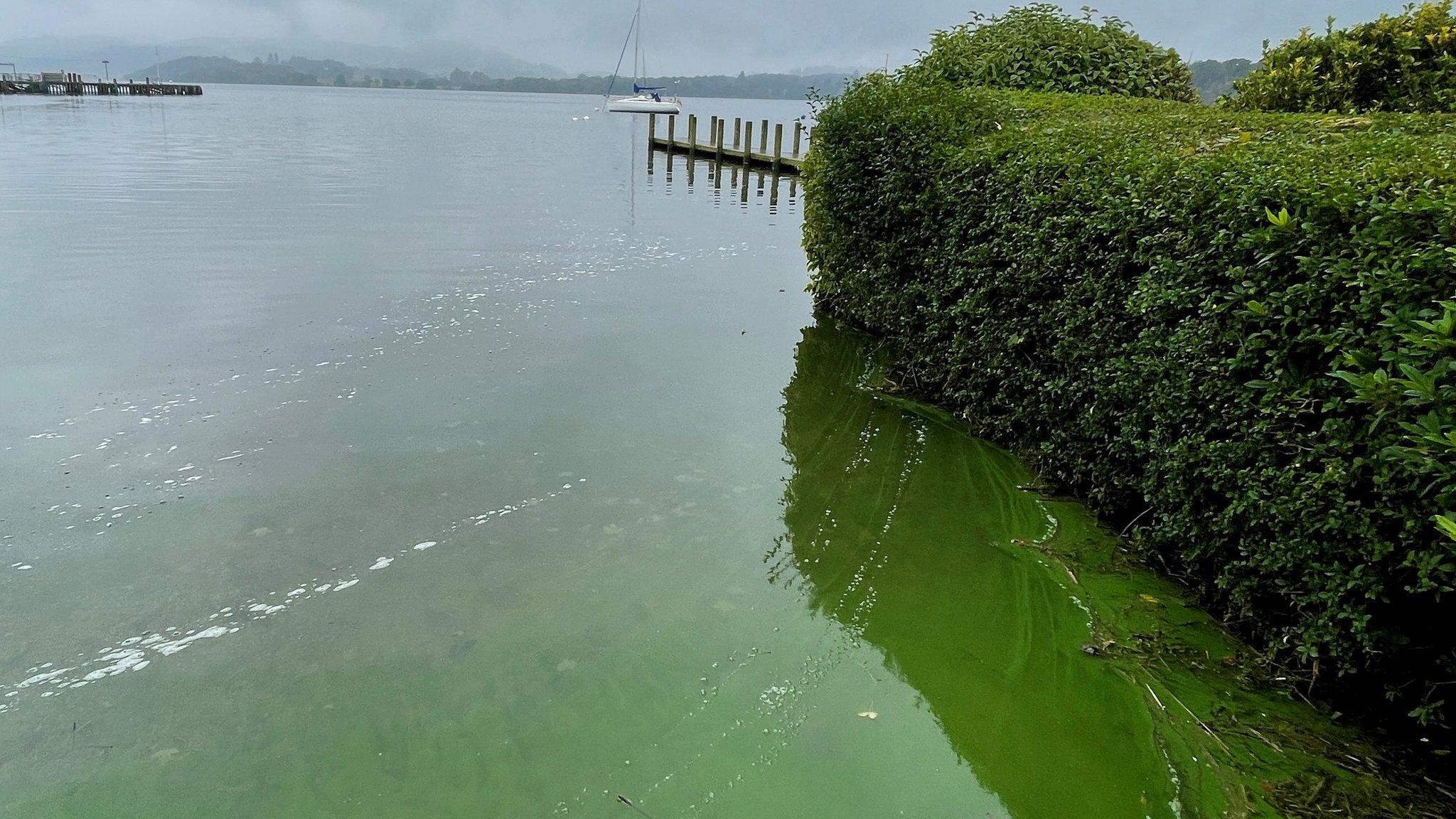Windermere: Harmful algae spreads across lake in heatwave
- Published
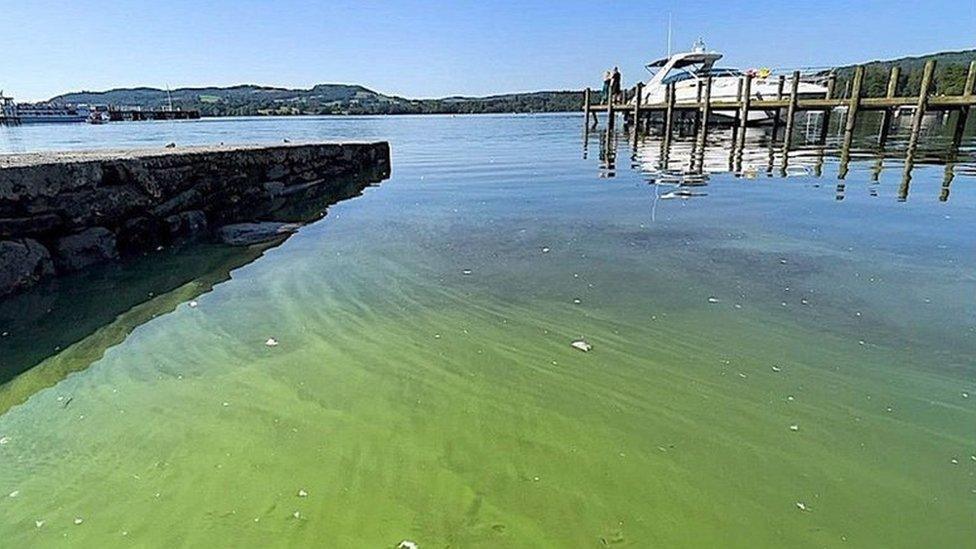
The blue-green algae blooms can be harmful to people, pets and fish
Prolonged high temperatures have seen harmful algae blooms spread across the "entirety" of England's largest lake, a campaigner has warned.
Zoologist Matt Staniek said the situation at Windermere, in the Lake District, was becoming "critical".
The blue-green blooms can make humans ill and be fatal to animals.
The Love Windermere partnership, led by the Environment Agency, said it had a long-term commitment to improving the lake's water quality.
Although algal blooms occur naturally, they are more frequent during warm, dry weather like that seen in recent weeks and are exacerbated by nutrients from phosphate in pollutants such as sewage.
'No urgency'
Mr Staniek, whose online petitions calling for action have been signed by almost 250,000 people, says phosphate in Windermere comes from a variety of sources.
These include sewage from waste treatment sites owned by United Utilities, septic tanks at homes and holiday lets, and run-off from farming land.
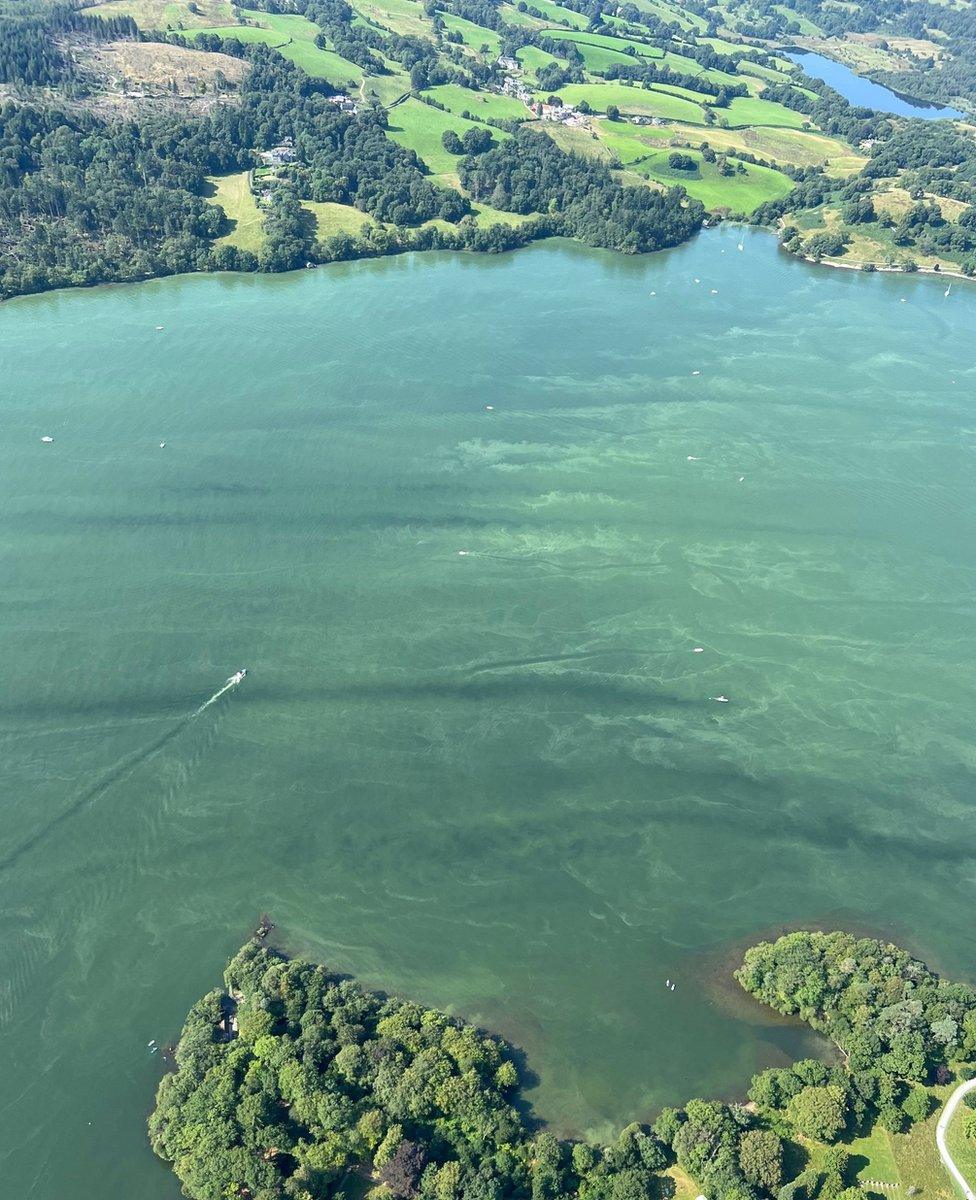
This image taken of Windermere on Sunday shows the extent of the algal bloom spread, Mr Staniek says
He believes organisations who share responsibility for the lake have shown "no urgency" to tackle the problem.
"We have not seen sufficient investment to protect Windermere. The entirety of the lake is covered in blue-green algae.
"Infrastructure is inadequate and no-one wants to upset the tourist industry.
"The heatwave then helps create a situation where the site cannot cope. The environment is screaming and people's health is being put at risk. People are becoming angry.
"Why should Windermere, the jewel in the crown of the national park, not have the most pristine water possible?"
'Threat to health'
Tim Farron, Liberal Democrat MP for Westmorland and Lonsdale, said there was "no doubt" action is needed.
"The water company is not doing enough to clean up their act and the government has not only failed to regulate them but also the thousands of septic tanks that are adjacent to the lake and its tributaries.
"Their failure to take this seriously is a threat to health, the environment and the tourism industry."
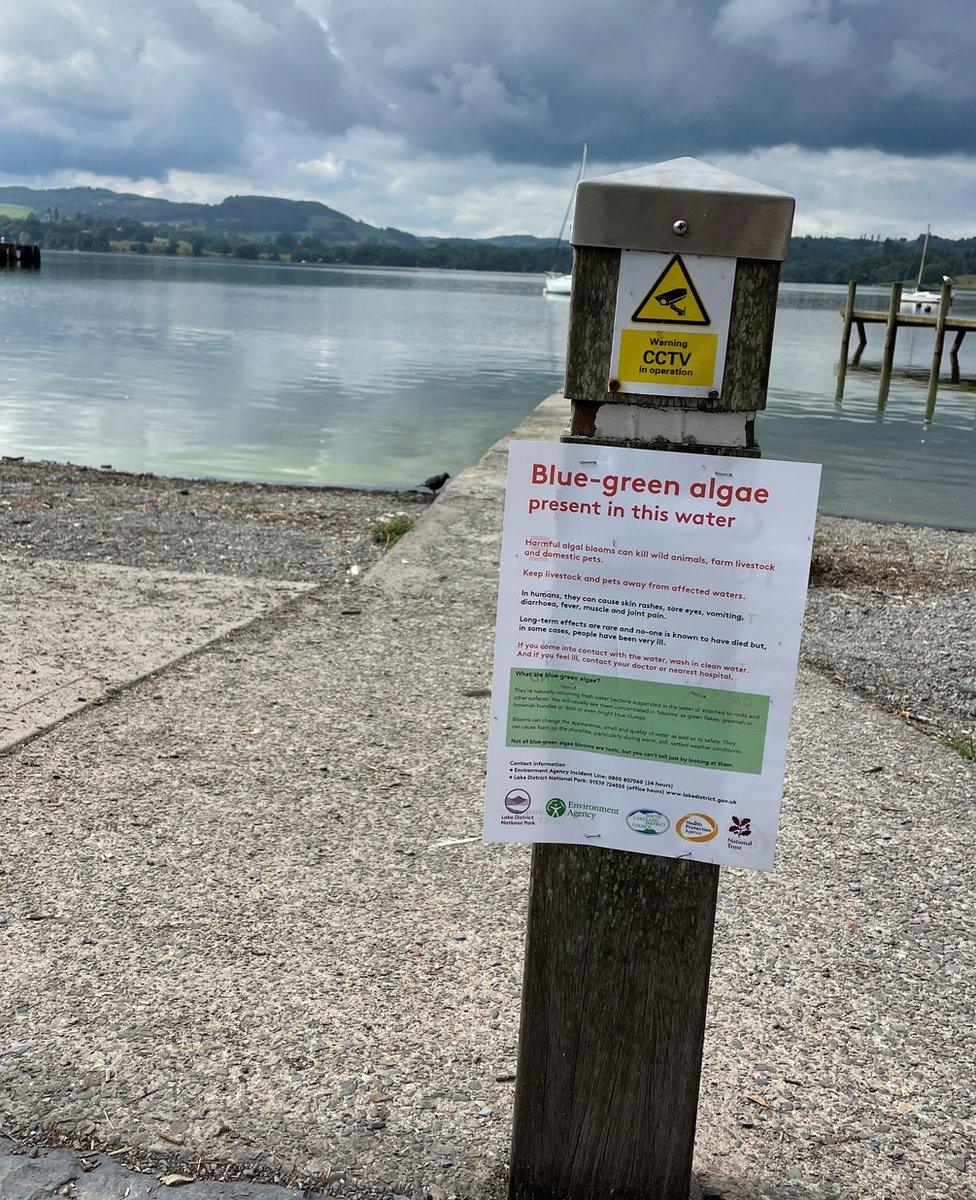
Notices warning of blue-green algae have been posted at the water's edge
The Environment Agency said it had spent more than £700,000 over the past decade to help tackle the problem.
The Love Windermere partnership, which also includes organisations such as United Utilities, the Lake District National Park Authority and the National Trust, told BBC Radio Cumbria water quality was "affected by a number of complex challenges including the impact of more extreme weather caused by climate change, an excess of nutrients and seasonal variations of the tourist population".
It added it was "committed to developing the most effective solutions to maintain and improve water quality in the lake, including collating more scientific evidence".

Follow BBC North East & Cumbria on Twitter, external, Facebook, external and Instagram, external. Send your story ideas to northeastandcumbria@bbc.co.uk, external.
- Published23 June 2022
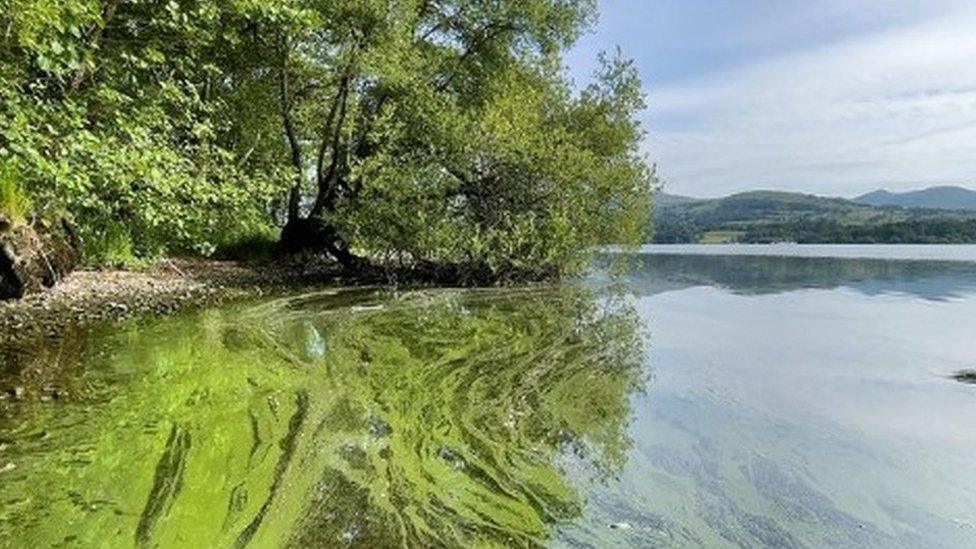
- Published2 December 2021
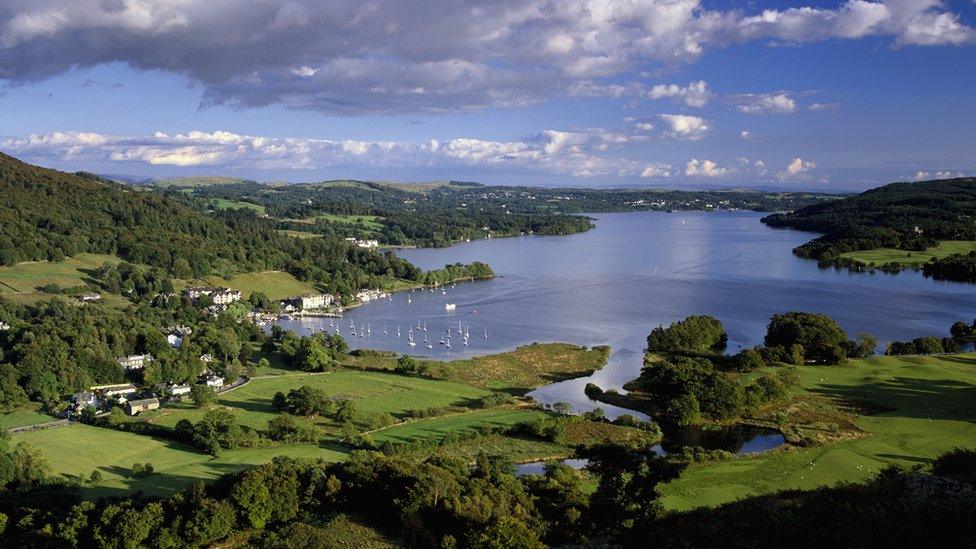
- Published14 October 2021
